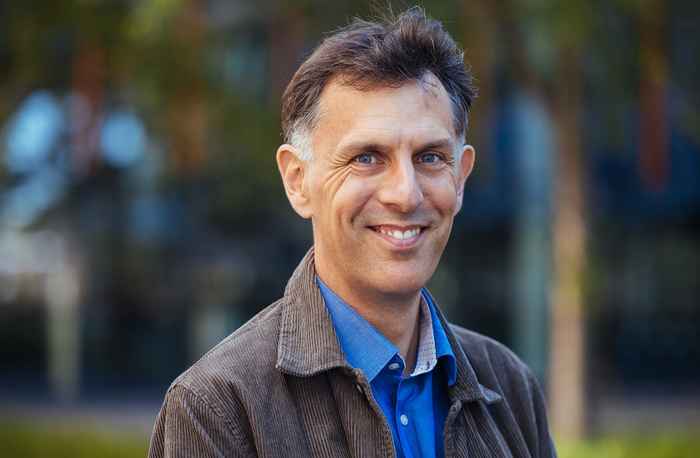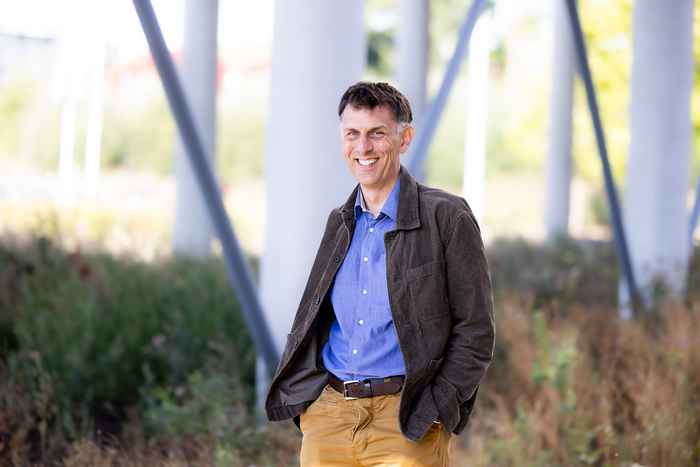William Gosling appointed Professor of Palaeoecology and Biogeography
27 September 2022

A glance into the past
Palaeoecology, or ecology of the past, is the study of the natural environment from different types of fossils. When asked what sparked his interest for paleoecology, William Gosling replies: ‘As a child my parents regularly took me walking in the Peak District National Park and to visit archaeological sites. During these expeditions I developed a strong interest in understanding the landscape that I saw and a fascination with how people had shaped this in the past.’ Gosling went on to study physical geography and archaeology. He discovered that looking at ancient micro-fossils, like pollen or fungal spores, can reveal changes in the environment and human activity in the past. Gosling has since become a world-renowned expert in tropical pollen and environmental change during the Quaternary (last 2.6 million years). In his research and education, Gosling seeks to place current issues related to climate change into a broad perspective by studying changes in the environment in the prehistoric past.
Lessons for the future
One of the major challenges for modern day society is the threat of human-caused climate change. Knowledge on how past climate change events have affected the environment could help predict future changes. ‘A great worry with ongoing climate change is how will this impact the ecosystems around us today. What does warmer climate mean for where different plants can grow? How will increased droughts impact water availability? By looking into the past we can seek periods of time that were warmer than today, or were subject to more seasonal climate, and explore what it was like then,’ Gosling explains. ‘By looking into the past we can get an idea of what changes might occur if the projections of climate change actually happen. This information can then be used to plan how best to cope with the changes that are coming.’

During his professorship, Gosling will continue expanding his research to areas and time frames relevant to how ancient human societies have shaped their environment. Gosling: ‘I want to gain further insights into how the peoples of the past shaped the forests of today in Amazonia, and discover what this means for the vulnerability of ecosystems there to modern human activity.’ He will also focus on the past vegetation changes between forest and savanna in Western Africa, which will help plan on how to combat the current problem of desertification. When asked what he is hoping to achieve during his professorship Gosling concludes: ‘In general terms, I guess, I am still driving towards those same questions I asked my parents when I was a child: why is this place like this, how did people change that?’
Gosling will combine his professorship with his current position as head of the Ecosystem & Landscape Dynamics department at the Institute of Biodiversity and Ecosystem Dynamics (IBED).
About William Gosling
Gosling joined the Institute of Biodiversity and Ecosystem Dynamics (IBED) as an Associate Professor. Since 2017 Gosling has been head of the Department of Ecosystem & Landscape Dynamics at IBED where he is responsible for the scientific leadership and department management. Gosling completed his doctoral research at the University of Leicester where he studied the characterization neotropical ecosystems by their modern pollen spectra. He continued working as a post-doc at the Florida Institute of Technology and studied trans-glacial cycles of the tropical Andes. Gosling further developed his scientific career at The Open University before arriving at the UvA in 2014. Gosling serves on the editorial boards of several leading scientific journals and is actively involved in organizing academic congresses. He also shares his passion for palaeoecology and biogeography with a wide audience through Twitter (@palaeolim) and as coordinator of the scientific blog “Ecology of the Past”.